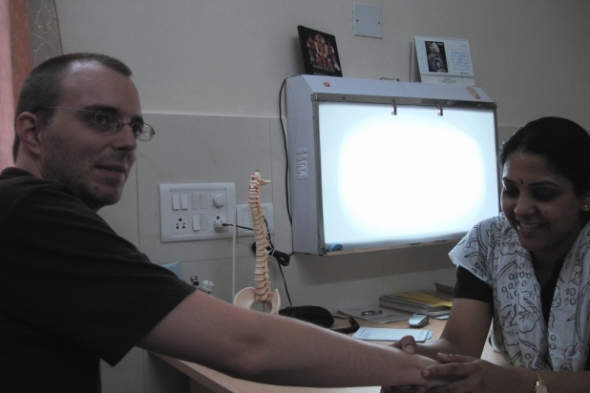- The right medical care at the right time is always in the best interest of the injured worker and almost always will result in the lowest claims costs.
- The right medical care at the right time will (almost always) result in an earlier return to work with less permanent residual disability.
- Evidence-based medicine is the right care for the legitimately injured workers. (There is a hierarchy on how to apply evidence-based medicine).
- To control worker's compensation medical costs requires both a fee schedule and an ability to control the frequency and the appropriateness of treatment. One without the others usually results in massive increase in medical costs for the system.
- The medical treatment fee schedule should be clear, easy to use, accurate and reflect the latest technology.
- A fee-for-service system may result in incentives for physicians to over-treat, inappropriately.
- In many jurisdictions Worker's Compensation is generally the last fee-for-service system.
- As long as workers compensation uses a fee-for-service system, medical utilization review is needed to make sure that the physicians will treat adhering to evidence-based medicine.
- Pharmacy utilization is problematic because of the "Medicalization" of the general population. (Medicalization is the direct advertising of symptoms and diagnoses to the general population by drug manufacturers, resulting in an overuse and/or misuse of some types of drugs and therapies).
- There is a significant problem with "off label use" of drugs in the worker's compensation system. (Off Label is the use of a drug for treatment that was not the reason for its approval from the FDA).
- Medical decisions should be made by medical professionals. Most Workers' Compensation judges, attorneys, and claims adjusters have little to no formal medical training and are not medical professionals.
- Poorly (inappropriate) placed incentives will result in poor medical outcomes. (There are several studies that demonstrate that allowing physicians to do self-referrals or to dispense pharmacy goods from their offices will usually result in a utilization of unnecessary services or inappropriate usage of drugs).
- Even if the doctor is not dispensing the drugs, opiates require regular visits to the doctor for renewal of the prescription and also may involve expensive drug testing; so there is a financial interest on the part of some doctors to prescribe opiates.
- Some physicians who prescribe opiates do not fully appreciate the addictive power of the drugs that they are using or the difficulty in detoxing the patients.
- There are currently enough treating physicians and specialty physicians in most urban areas; however there are not enough physicians (treating, orthopedic or neurosurgeons, etc.) in the rural areas to meet the demand. This problem will only get worse as the population ages and more doctors retire. It will also get worse if physicians leave workers' compensation due to the demand for their services due to the implementation of the federal universal health care programs.
- Many surgeons and other physicians want to perform their craft (do surgery, provide injections, etc.). They truly believe that their surgery or injections will work even if the prior treatments have not been successful or if current evidence-based medicine says surgery is not appropriate.
- Every patient looks like a good candidate for an MRI when there is an MRI machine in the doctor's office.
- Not every person with a surgical or potentially surgical condition is a good surgical candidate. Though pre-surgical psychiatric evaluations are required for spinal cord stimulators (post spine surgery), the same is not true for many other surgeries.
- It is difficult for a patient who is in intractable pain to believe that strong medications (including opiates) are not appropriate or are not good.
- It is difficult for a patient who is in intractable pain to believe that not having back surgery will have the same ultimate result as having surgery when the surgeon is saying (with confidence) that the surgery will cure all. Even though current evidence-based medicine says differently.
- Because "doing something is better than doing nothing" when the patient is in intractable pain, if the surgeon says surgery will not be successful, the injured worker will attempt to find someone who will say that the surgery "will be more successful than not having surgery," and will then attempt to have the surgery.
- Patient advocacy is the application of appropriate treatment and patient encouragement that allows the patient to remain as functional and productive as possible.
- Patient advocacy does not always mean the pursuit of treatment a patient desires.
- Patient advocacy may require the physician to decline to do the treatment sought by the patient when that treatment is inappropriate.
- In Workers'Compensation, there are many (known and unknown) underlying non-industrial, psyche/social issues that may hinder or completely stop optimum medical recovery.





